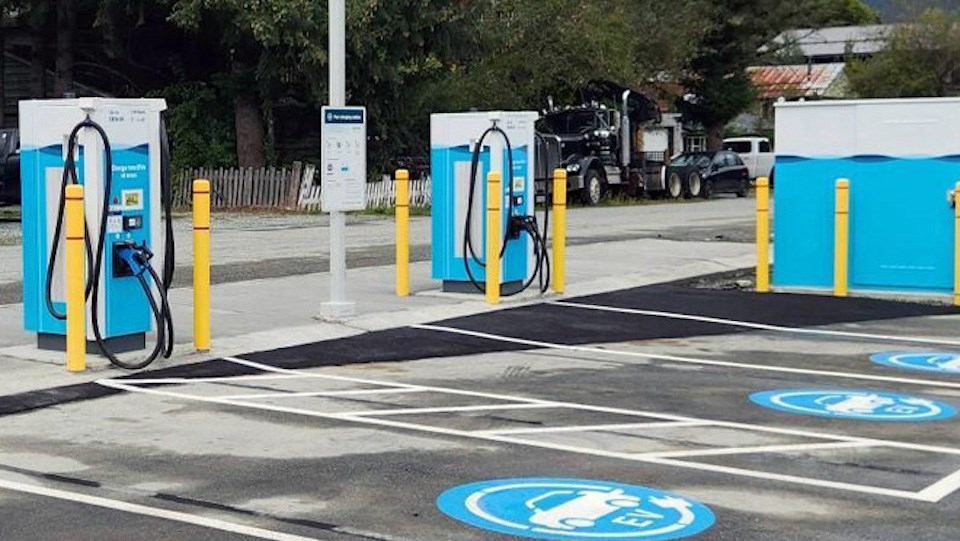New quarterly data released from Stats Canada reveals zero-emissions vehicle (ZEV) registrations are falling in Pemberton in 2024, despite an overall uptick in adoption of ZEVs in the village since 2017.
According to the Canadian government, ZEVs are vehicles that either have no tailpipe emissions or have the potential to do so. This includes electric vehicles, plug-in hybrids, and vehicles with a hydrogen fuel cell.
The data released shows a decline in new ZEV registrations in Pemberton for the first three quarters of 2024 after a peak of 14 new registrations in the last quarter of 2023.
Nevertheless, the overall trend is up for new ZEVs among the village's residents. Those owners said they’re happy with their purchases.
Imogen Farren bought an EV in 2022. She drives into Whistler from Pemberton twice a day to drop off and pick up her kids from daycare and makes the trip down to North Van for her work once every two weeks. With a plug-in charger installed at home, she said the EV just made sense.
“Gas prices were rising, and it actually saves us money each month having an electric vehicle,” she said. "[A]nd it was also an ethical decision we made.”
Other EV owners echoed Farren, saying fuel savings drove their choice to purchase a ZEV while environmental ethics came in a close second.
Still, not everyone is sold. The age-old problem of range anxiety—concern about how far a ZEV can make it before needing a charge—still resonates for some.
Pemberton is remote. Off-the-grid work and living precludes higher adoption of the vehicles, said some residents.
In September, two new fast chargers were installed in Pemberton at 7444 Frontier Street. Farren said they’re often available. The chargers were installed as part of a BC Hydro project to increase EV coverage in rural communities and decrease range anxiety.
A 2024 study of EV uptake found range anxiety is mostly a thing of the past, but more so for newer EVs. Another 2024 study, this one by the U.S. Department of Energy, found EVs now have a median range of 434 kilometres or more on a single charge, which rivals many gas-powered vehicles; still, the cost of newer, higher-performing EVs remains prohibitive.
EY's Mobility Consumer Index report, released in November, shows while six per cent more Canadians were looking to purchase a car compared with last year, two-per-cent fewer (52 versus 50 per cent) were considering a fully electric, plug-in hybrid, or hybrid vehicle over the next two years. That number falls further when respondents were asked about purchasing a fully electric vehicle—down to 15 from 18 per cent in 2023.
The report cited limited driving range, lack of charging infrastructure, the up-front cost of EVs and expensive battery replacements as impediments to purchase.
Other Pemberton residents expressed concerns about the environmental impact of ZEVs, questioning whether the term "zero-emissions" is accurate due to emissions associated with mining the materials required for the EVs. In 2021, the International Energy Agency estimated EVs require 173kg more minerals like lithium, nickel and copper than internal combustion engines, when ignoring steel and aluminum.
Tina Buchan lies in the middle. She and her husband commute to Whistler every day of the week during ski season in a hybrid 2023 Toyota RAV Prime. She said her decision to go hybrid was driven by wanting to contribute to the environment while managing range anxiety.
“[The car] has a hybrid engine and an EV option,” said Buchan. “We wanted something more environmentally responsible, but did not feel this area of B.C. has enough chargers to go fully EV.”
While Buchan notes the vehicle was expensive, she also said it has been worth it for the cost savings and environment consciousness.
“We probably only fill the gasoline tank every three months and primarily rely on the EV engine,” she notes. “We love this SUV and would buy it again in a second."



